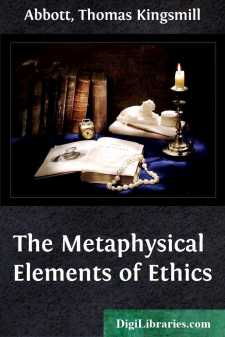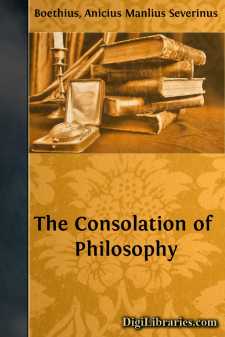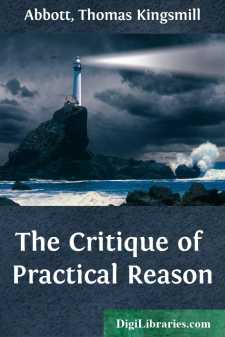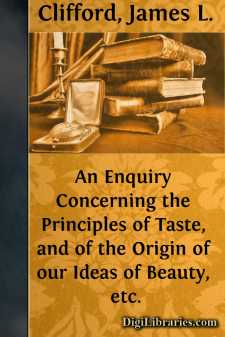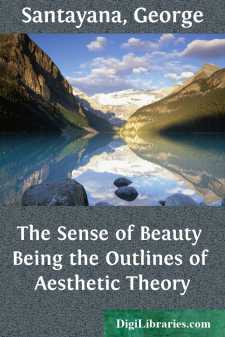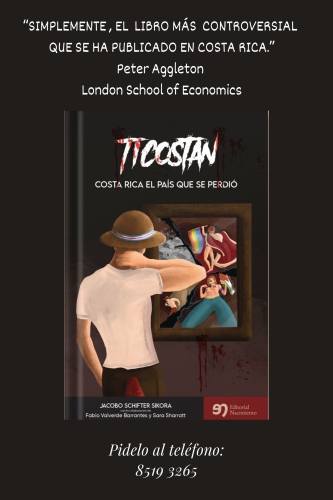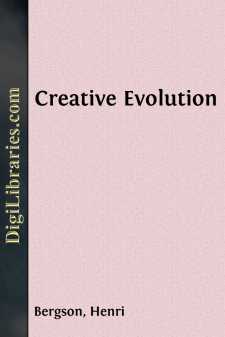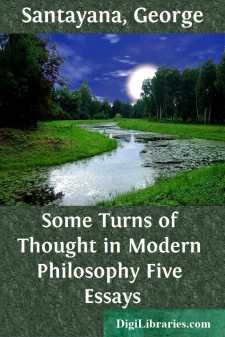Philosophy
- Aesthetics 11
- Eastern 1
- Ethics & Moral Philosophy 3
- General 30
- Hindu 2
- History & Surveys 3
- Logic 1
- Metaphysics 3
- Political 1
- Religious 8
- Social 3
- Taoist 1
Philosophy Books
Sort by:
If there exists on any subject a philosophy (that is, a system of rational knowledge based on concepts), then there must also be for this philosophy a system of pure rational concepts, independent of any condition of intuition, in other words, a metaphysic. It may be asked whether metaphysical elements are required also for every practical philosophy, which is the doctrine of duties, and therefore also...
more...
SONG I.Boethius' Complaint.Who wrought my studious numbersSmoothly once in happier days,Now perforce in tears and sadnessLearn a mournful strain to raise.Lo, the Muses, grief-dishevelled,Guide my pen and voice my woe;Down their cheeks unfeigned the tear dropsTo my sad complainings flow!These alone in danger's hourFaithful found, have dared attendOn the footsteps of the exileTo his lonely...
more...
Religion THE APOCRYPHA Apocrypha is a Greek word, signifying "secret" or "hidden," but in the sixteenth century it came to be applied to a list of books contained in the Septuagint, or Greek translation of the Old Testament, but not in the Palestinian, or Hebrew Canon. Hence, by theological or bibliographic purists, these books were not regarded as genuine Scripture. That view was...
more...
by:
Mai Kouyate
"Si vous pensez être athée, ce texte est fait pour vous." Dieu n'est pas seulement en vous, mais il est refoulé au plus profond de votre psyché. Ce livre vous permettra d'aller à la rencontre de ce dieu méconnu.
PREFACE. This work is called the Critique of Practical Reason, not of the pure practical reason, although its parallelism with the speculative critique would seem to require the latter term. The reason of this appears sufficiently from the treatise itself. Its business is to show that there is pure practical reason, and for this purpose it criticizes the entire practical faculty of reason. If it...
more...
INTRODUCTION Since the early nineteenth century it has been known that Frances Reynolds, the sister of Sir Joshua, was the author of an essay on taste, which she had printed but did not publish. Yet persistent search failed to turn up a single copy. It remained one of those lost pieces which every research scholar hoped someday to discover. In 1935 it appeared that the search was over. Among some...
more...
by:
George Santayana
PREFACE This little work contains the chief ideas gathered together for a course of lectures on the theory and history of aesthetics given at Harvard College from 1892 to 1895. The only originality I can claim is that which may result from the attempt to put together the scattered commonplaces of criticism into a system, under the inspiration of a naturalistic psychology. I have studied sincerity...
more...
by:
Jacobo Schifter
Un libro polémico acerca de los mitos sobre el país de "Pura Vida" que abarca una crítica mordaz a la cultura woke y al movimiento lbgtq.
by:
Henri Bergson
INTRODUCTION The history of the evolution of life, incomplete as it yet is, already reveals to us how the intellect has been formed, by an uninterrupted progress, along a line which ascends through the vertebrate series up to man. It shows us in the faculty of understanding an appendage of the faculty of acting, a more and more precise, more and more complex and supple adaptation of the consciousness...
more...
by:
George Santayana
I A good portrait of Locke would require an elaborate background. His is not a figure to stand statuesquely in a void: the pose might not seem grand enough for bronze or marble. Rather he should be painted in the manner of the Dutch masters, in a sunny interior, scrupulously furnished with all the implements of domestic comfort and philosophic enquiry: the Holy Bible open majestically before him, and...
more...


